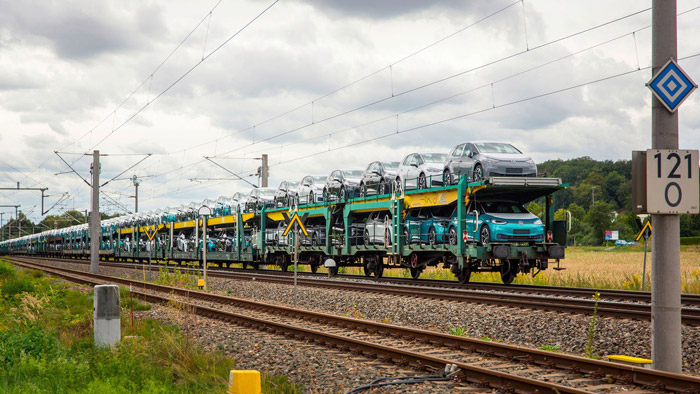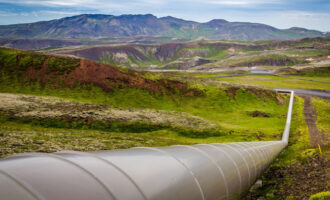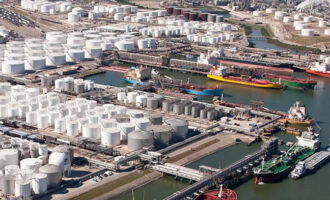
Volkswagen sets the course for 100% green electricity transport with Deutsche Bahn
Volkswagen Group Logistics will switch all domestic material and vehicle transports with Deutsche Bahn to green electricity by the beginning of 2021. This saves more than 26,700 tons of CO2 emissions each year compared to the conventional electricity mix. The number of transports with green electricity is currently 95%. At the same time, more goods are to be transported by rail: Volkswagen wants to increase the share of vehicle transports by rail from the current 53% to 60% by 2022. “With this green electricity offensive, we are making an important contribution to the decarbonisation of the group,” says Thomas Zernechel, head of Volkswagen Group Logistics. For this purpose, Deutsche Bahn feeds in electricity from wind farms and hydropower plants.
“Volkswagen is the automobile manufacturer in Europe that transports the largest volume of electricity generated from renewable sources by rail. In addition to the balance sheet CO 2 -neutral production of electric vehicles is this, another element for example, vehicles of the Volkswagen family ID without CO2 to pass -Rucksack to customers. “
In normal operation, more than 190,000 wagons roll for Volkswagen every year: an average of 38 long-distance and 157 local trains deliver material to the plants every day – a total of around 100,000 wagons per year. Around 90,000 wagons bring around 900,000 vehicles from the Volkswagen Passenger Cars, AUDI, ŠKODA, SEAT, Porsche and Volkswagen Commercial Vehicles brands to 40 hubs, distribution centers and seaports from the plants.
“Every ton on the rail automatically saves 80% CO2 . Volkswagen is now going a step further: absolutely green transport without CO2 emissions. We at DB Cargo are happy about that and our environment is even more happy, ”says Dr. Sigrid Evelyn Nikutta, DB board member for Freight Transport and CEO of DB Cargo.









